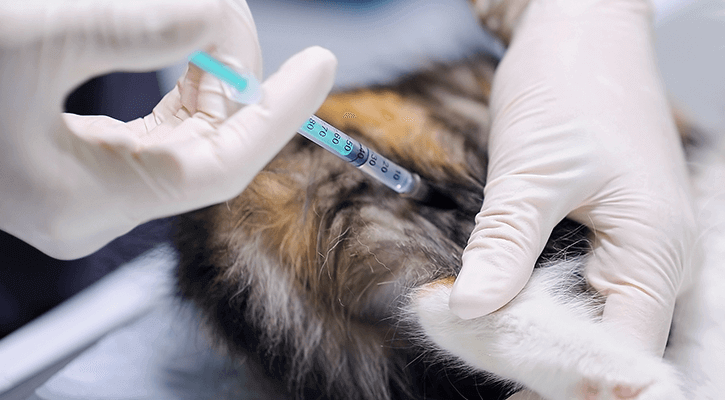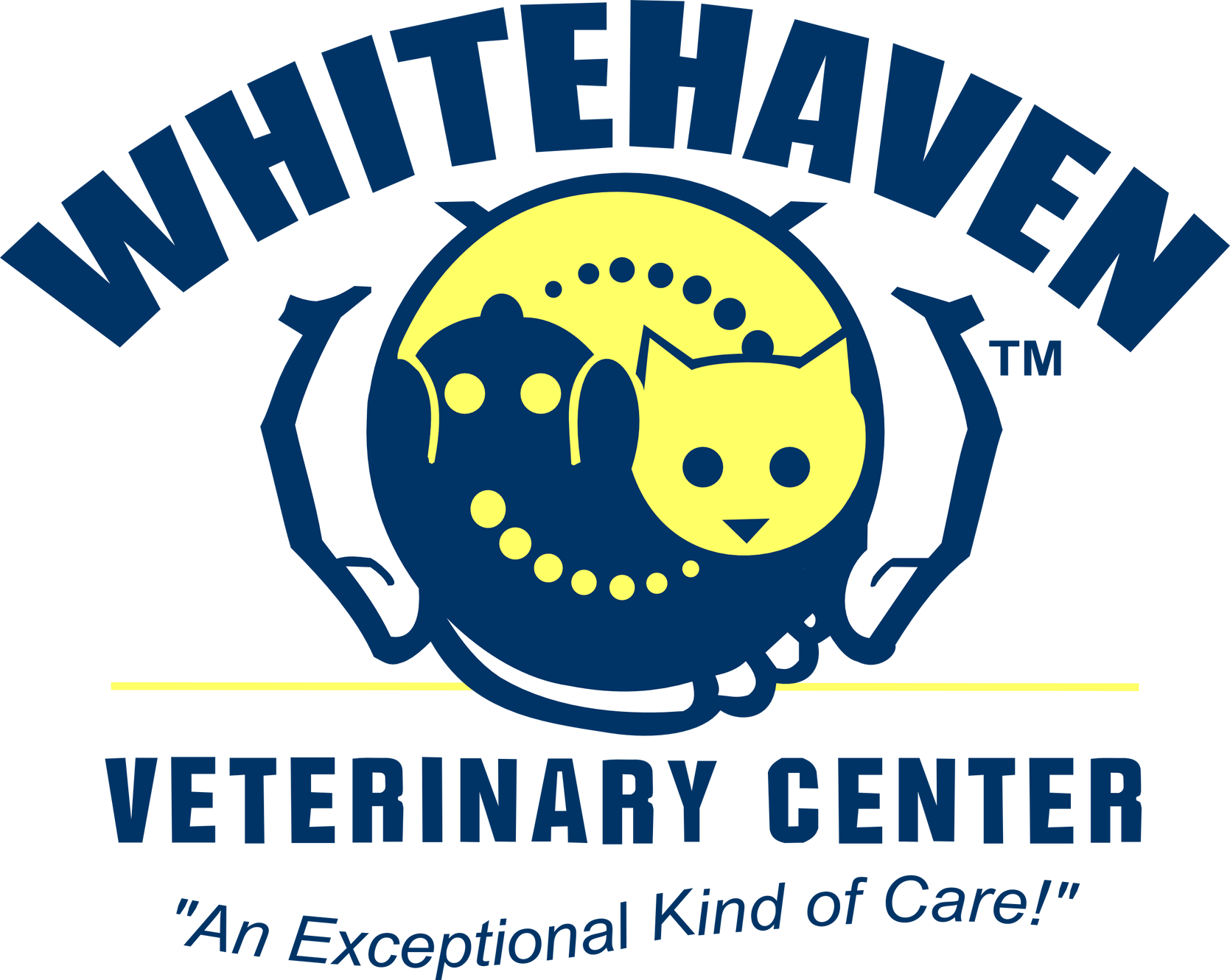
Vaccinations
Young animals are like kids–it’s a never-ending job to keep them safe and happy. Vaccinating your pet is a relatively inexpensive but very important way to protect his or her health. In addition to preventing many life-threatening illnesses, vaccinations can prevent diseases prevalent in wildlife and those that can be passed to humans. It’s important to administer vaccinations when pets are puppies and kittens because their young immune systems are still developing and need protection to stay healthy.
While any medical treatment involves some degree of risk, in the case of vaccinations, the benefits far outweigh any potential side effects. Adverse reactions are rare and usually mild and short-term when they do occur.
Canine Vaccines
RABIES
Iowa law requires that an initial rabies vaccine be administered by the time a pet is 16 weeks old. Puppies and kittens receive a 1-year vaccine for their first rabies shot. The following year, they are eligible to receive their 3-year rabies vaccine.* There is no cure for rabies! If your pet is exposed to the rabies virus, having a current vaccination could save its life.
*The state of Iowa’s rabies vaccine requirements stipulate that if you allow a pet’s rabies shot to expire, your vet is required to give your dog a 1-year vaccine. If your rabies vaccine is updated on or before the expiration date, your pet will be able to receive a 3-year rabies vaccine.
DAPP (Distemper, Adenovirus, Parainfluenza, Parvovirus)
DAPP is first given in an initial puppy vaccination series (sometimes called “puppy shots”) starting at 8 weeks of age and usually includes 3 shots administered 3 weeks apart. After the initial puppy series, adults may receive a 1, 2, or 3-year vaccine, to be determined by your veterinarian. Many dogs are exposed to these potentially deadly diseases during their lifetimes. Keeping your dog up-to-date on its DHPP vaccine is a simple way to prevent several illnesses at once.
BORDETELLA
This annual vaccination prevents tracheobronchitis (commonly called “canine cough” or “kennel cough”), a highly contagious air-borne bacterium that causes a dry hacking cough, lethargy, and lack of appetite that can persist for several weeks. Puppies and older dogs are especially susceptible to canine cough.
LYME
This bacterial disease is transmitted by ticks and affects both people and animals. It is an incurable but controllable debilitating disease. If your dog is exposed to tall grass or wooded areas, if you camp or hunt, or if you vacation in the state of Wisconsin, your dog should receive this vaccine. Adult dogs need yearly Lyme boosters.
LEPTOSPIROSIS
This disease is caused by a bacteria that is found in contaminated water sources. It is spread through the urine of infected wildlife, especially mice, raccoons, and deer. Vaccination for “lepto” is elective based on risk. You can decide with your veterinarian whether or not you should vaccinate your dog. If contracted, leptospirosis is life-threatening for dogs and can be spread to people. Adult dogs require yearly lepto boosters.
Feline Vaccines
FVRCP (Feline Viral Rhinotracheitis, Calicivirus, and Panleukopenia)
FVRCP is first given in an initial kitten vaccination series (sometimes called “kitten shots”) starting at 8 weeks of age and usually includes 3 shots administered 3 weeks apart. After the initial kitten series, adults may receive a 1, 2, or 3-year vaccine, to be determined by your veterinarian. Most of these viruses attack your kitten’s gastrointestinal or respiratory systems and can be fatal. Keeping your cat up-to-date on its FVRCP vaccine is a simple way to prevent several illnesses at once.
FELINE LEUKEMIA
Feline leukemia is the leading cause of cancer in cats. It can also cause blood disorders and drastically weaken the feline immune system. Feline leukemia is transmitted through body fluids like saliva and urine. Cats that like to share their water dishes, food bowls, or litter boxes are especially prone. It can also be transmitted from mother to kitten during pregnancy or through nursing. There is a vaccine available for feline leukemia. Once your kitten has tested negative for the feline leukemia virus, we recommend that you have your kitten vaccinated. This vaccine is given in a series of two shots, two weeks apart. Following the initial two shots, the vaccine can be renewed annually with a single booster.
Other non-core, but highly suggested vaccinations for cats include FeLV to protect against feline leukemia. For dogs, bordetella and canine influenza shots are recommended if they frequent dog parks, boarding kennels, or any place where they’re socializing with other canines.
It’s also important to note that even pets who live primarily indoors should be vaccinated, as they can still be exposed to a
Schedule An Appointment At Our Davenport Center Today
For more information or to schedule an appointment, call us at 563-386-9680.
